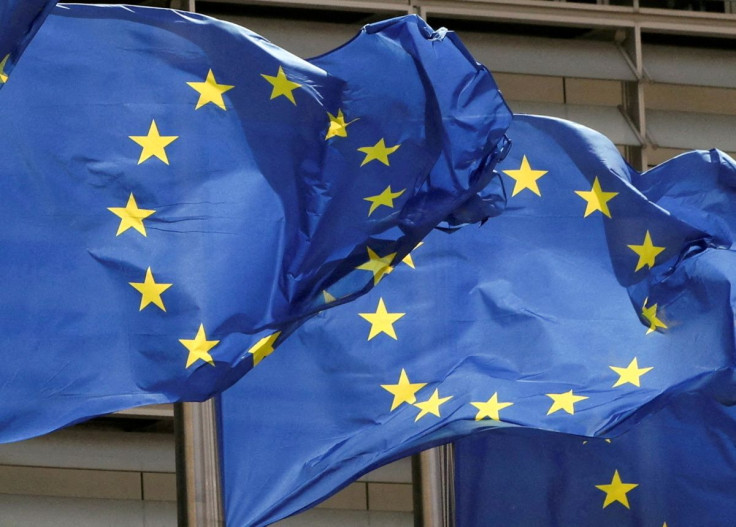Belgium Protests Hint At Cracks In EU, NATO Unity

Strikes galore in Belgium over rising living costs due to the conflict in Ukraine. After the nationwide strike on June 20 which brought the capital Brussels to a grinding halt, the proposed three-day stir by Brussels Airlines crew and pilots from June 23 will result in the cancellation of 315 flights, impacting 40,000 passengers.
More than 533 flights were planned for the three days from the country's largest airport, catering to 70,000 passengers, Brussels Airlines said in a statement.
Crews and pilots are seeking a hike in their cafeteria plan - a budget for extra-legal benefits-- due to the high work pressure.
The June 20 national strike resulted in the cancellation of all flights from Brussels Airport as the employees, including security personnel, took part in the demonstration.
The protest, organized by trade unions ACV, ACLVB and ABVV, sought a hike in wages due to the rising cost of living.
This large trade union demonstration in Brussels saw between 50,000 and 100,000 people taking part, which threw normal life out of gear as transport routes across the Belgian capital remained disrupted throughout the day.
"Life is expensive, we need higher wages," a giant screen put up by the protesters read.
Unions are seeking a hike in wages and also called for an amendment to the Wage Norm Act, which has frozen wage negotiations.
Prime Minister Alexander De Croo said Belgian workers are quite well off compared with their counterparts in most other European Union nations.
Because of Russia's invasion of Ukraine, the supply chain network to the EU has been disrupted and energy and commodity prices have soared. Inflation hit 9 percent this month in Belgium, a country of 11.5 million inhabitants.
According to a report by the National Bank of Belgium, inflation reached its highest level in Belgium since 1982, at 8.97 percent last month, as food and energy prices soared following the EU move to cut off oil and gas imports from Russia.
Belgium was worst-hit due to COVID-19, which has claimed 1.8 million lives in Europe. In the country, 4 million infections were reported with 31,574 deaths -- the second-highest in Western Europe after Italy.
Belgian unions of low-cost airline Ryanair are planning a three-day strike from June 24, during a peak holiday weekend. The unions allege that Ryanair is not respecting Belgian labor law, and is taking cabin crew payments seriously.
As a slew of demonstrations is expected to hit the roads of the country, the EU is expected to officially grant Ukraine EU candidate nation status at the summit in Brussels on June 23.
Belgium has been aiding Ukraine with weapons to withstand Russian aggression. In the initial weeks since the conflict started on Feb. 24, Belgium sent 200 anti-tank weapons, 5,000 automatic weapons, and 3,800 tons of fuel to the East European nation.
In April, it promised to send heavy artillery, including U.S.-made M-109A4BE and French-made CAESAR howitzers.
"What is important to us is that the Ukrainians be able to receive this material, that is the essential thing," Belgian Defence Minister Ludivine Dedonder told the Belgian legislature.
Inflation has plagued many EU nations. Earlier, doctors resorted to strikes in Turkey, and a mass strike by metal workers and truck drivers took place in Spain. In Italy, a one-day nationwide strike was called by train and mass transit workers and textile workers.
People are expected to take to the streets in other EU nations like Spain, Portugal, Italy and France in the coming weeks as the cost of living has increased many-fold.
As the Ukraine conflict is dragging its feet, NATO nations' newfound love for unity and relevance is falling apart and the military alliance appears to be fraught with strains.
Turkey under President Recep Tayyip Erdogan can start flirting with Russia anytime as he used to do. Hungary under Prime Minister Viktor Orban is undermining EU attempts to put pressure on Russia and China.
French President Emmanuel Macron's unpredictable posturing and Chancellor Olaf Scholz's foot-dragging have already hit headlines. Germany, the biggest EU economy and the largest importer of Russian energy, always had a soft corner for Russia.
The 30-strong (soon to be 32) alliance looks out of shape ahead of its three-day summit, starting June 28, in the Spanish capital Madrid.
Their glorious display of unity at the start of the war has waned forever.





